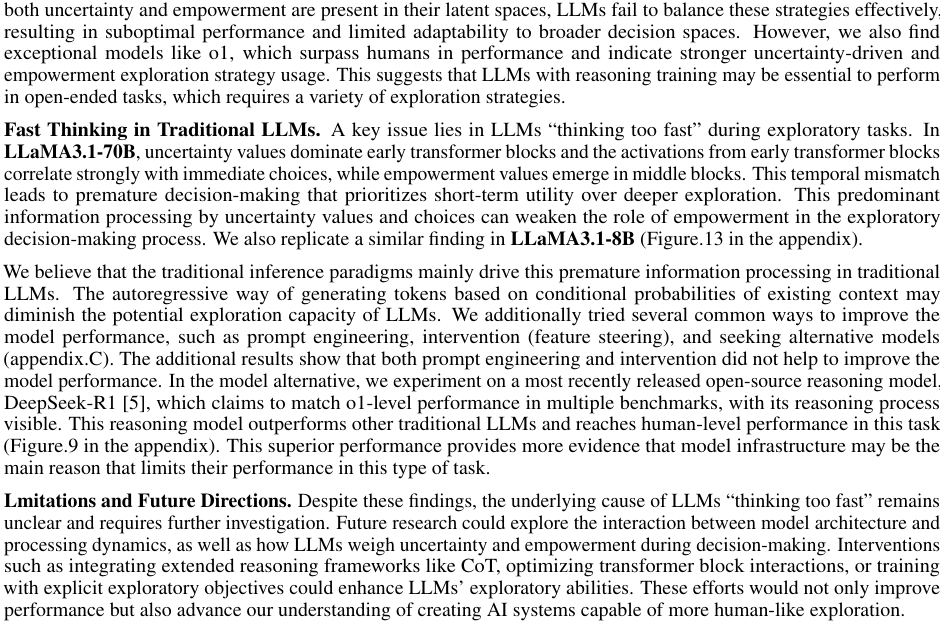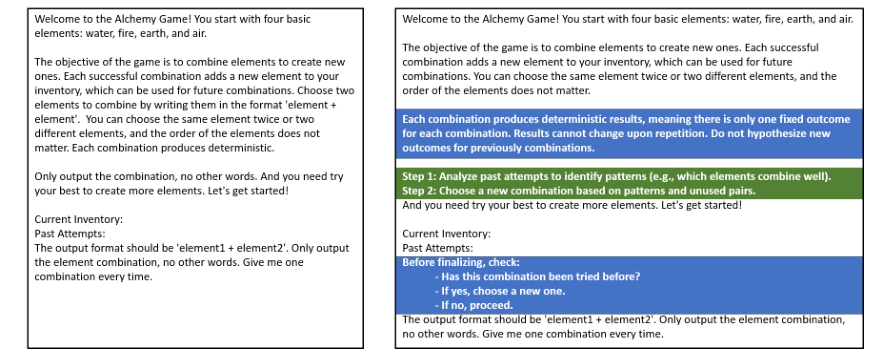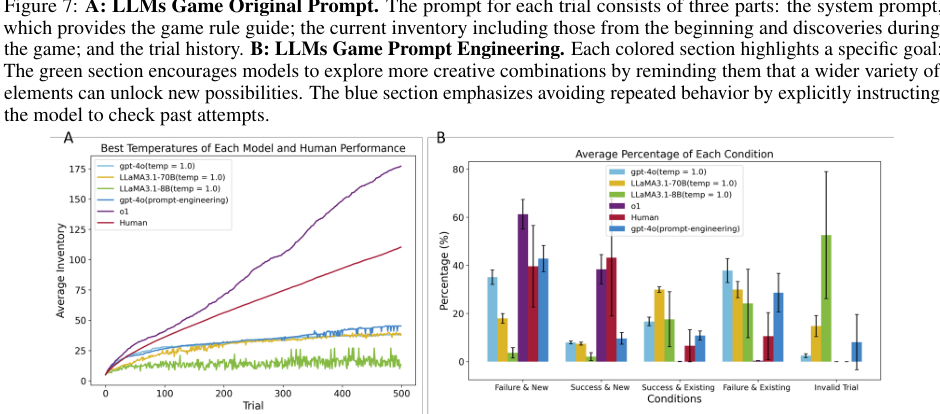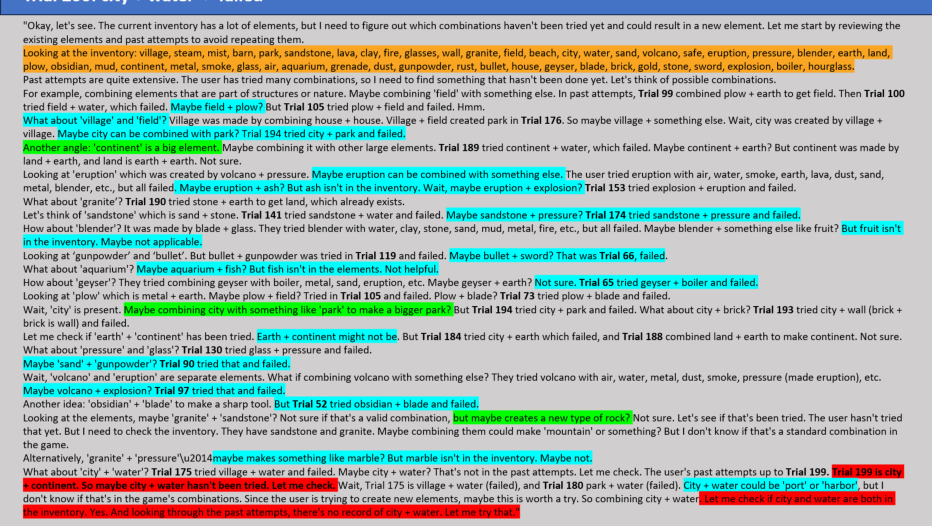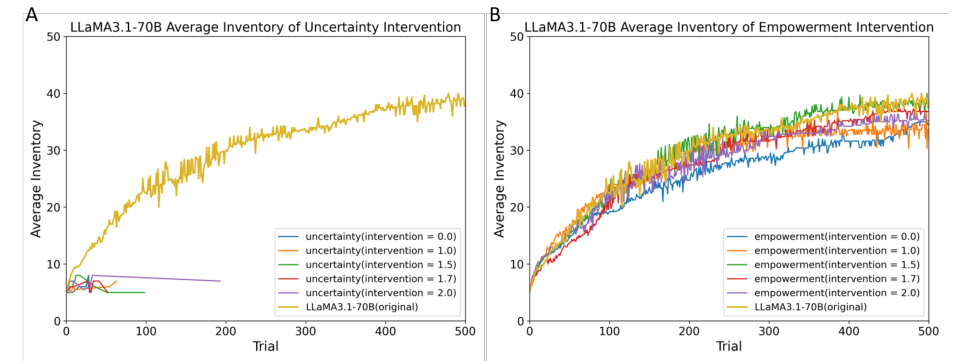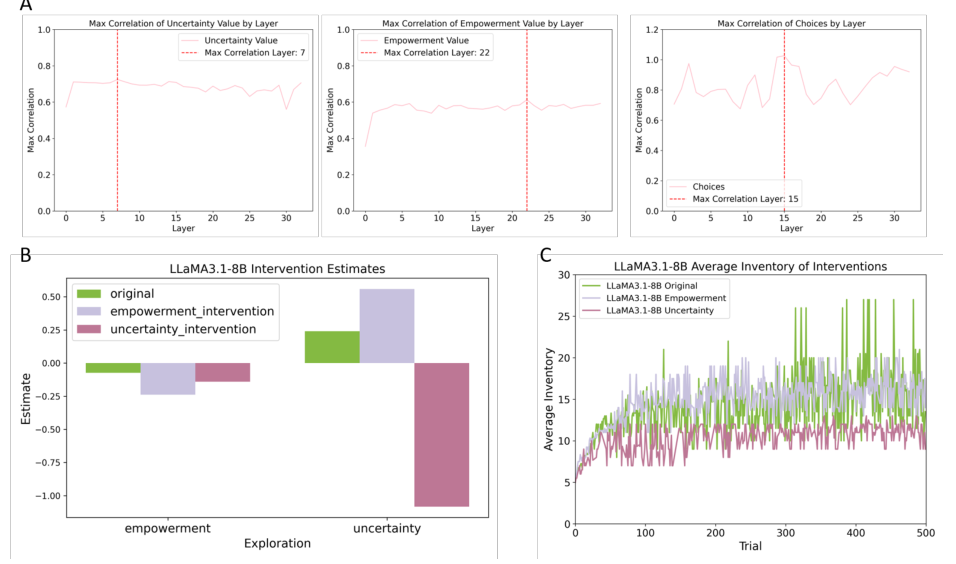Large Language Models Think Too Fast To Explore Effectively
Lan Pan, Hanbo Xie, Robert C. Wilson·January 29, 2025
Summary
Large Language Models (LLMs) often excel in cognitive tasks but struggle with exploration, essential for discovering new information. A study using Little Alchemy 2 found that most LLMs underperformed compared to humans, except for the o1 model. Traditional LLMs relied on uncertainty-driven strategies, unlike humans who balanced uncertainty and empowerment. Analysis revealed LLMs think too fast, making premature decisions, due to how they process uncertainty and empowerment values. This highlights LLMs' limitations in exploration and suggests areas for improvement in their adaptability.
Introduction
Background
Overview of Large Language Models (LLMs)
Importance of exploration in cognitive tasks
Objective
To compare the performance of LLMs in exploration tasks with human performance
To analyze the strategies employed by LLMs in comparison to humans
Method
Data Collection
Selection of LLMs for the study
Description of the exploration task (Little Alchemy 2)
Data Preprocessing
Preparation of data for analysis
Standardization of LLM responses
Results
Performance Comparison
Quantitative analysis of LLM performance
Qualitative insights into LLM decision-making processes
Human vs. LLM Strategies
Examination of human strategies in comparison to LLM approaches
Analysis
LLM Decision-Making Processes
Examination of how LLMs process uncertainty and empowerment
Identification of the "thinking too fast" phenomenon
Limitations in Exploration
Discussion of LLMs' limitations in exploration tasks
Analysis of the underlying reasons for these limitations
Discussion
Implications for LLM Adaptability
Importance of adaptability in LLMs for real-world applications
Potential improvements in LLM design for better exploration capabilities
Future Directions
Suggestions for future research in enhancing LLM exploration
Considerations for integrating human-like decision-making processes
Conclusion
Summary of Findings
Recap of the study's main findings
Implications for the Field
Impact of the study on the development of LLMs
Potential for advancing AI in exploration and discovery tasks
Basic info
papers
neurons and cognition
artificial intelligence
Advanced features
Insights
What cognitive tasks do Large Language Models (LLMs) typically excel at?
Why did traditional LLMs rely on uncertainty-driven strategies instead of balancing uncertainty and empowerment?
Which study found that most LLMs underperformed compared to humans in discovering new information?
What limitation in exploration does the analysis of LLMs highlight, and how does it relate to their processing of uncertainty and empowerment values?



